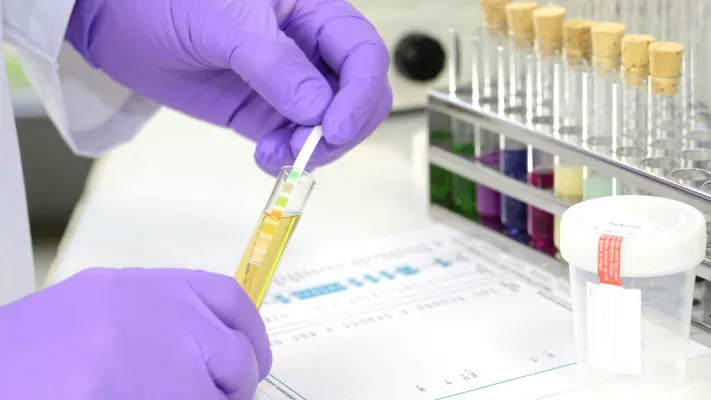Alcohol testing is a crucial tool used in various contexts, from law enforcement and workplace safety to medical evaluations and personal monitoring. Whether you’re an employer looking to maintain a safe working environment, a healthcare provider assessing patient health, or an individual seeking personal insight, understanding the ins and outs of alcohol testing can be vital. This blog explores the types of alcohol testing, their applications, and key considerations for rapid alcohol test.
The Importance of Alcohol Testing
Alcohol testing plays a pivotal role in promoting safety and responsibility in both professional and personal settings. For businesses, it helps ensure that employees are in a suitable state to perform their duties, especially in safety-critical industries. In the legal realm, alcohol tests are used to enforce DUI laws and monitor individuals on probation or involved in custody cases. Health professionals use alcohol testing to diagnose and manage conditions related to alcohol consumption, such as liver diseases and alcohol use disorder.
Types of Alcohol Testing
Breath Alcohol Testing
Breathalyzers: The most well-known method for detecting alcohol levels, breathalyzers measure the amount of alcohol present in one’s breath. This method is widely used by police for on-the-spot testing during traffic stops and by employers for random alcohol screenings. It offers immediate results and is highly effective for determining current levels of impairment.
Blood Alcohol Testing
Blood Tests: These are considered the gold standard for measuring the amount of alcohol in the bloodstream. Blood tests are highly accurate and can provide a detailed record of an individual’s alcohol level at the time of the test. They are commonly used in formal and medical settings but require professional handling and are more invasive than other methods.
Urine Alcohol Testing
Urine Tests: Although not as immediate as breath tests, urine tests can detect alcohol consumption up to 80 hours after drinking. They are used in various settings, including routine workplace testing and during medical examinations, to provide a broader window of detection compared to breathalyzers.
Hair Alcohol Testing
Hair Follicle Tests: This type of testing can detect alcohol consumption over a longer period, typically up to 90 days. Hair alcohol testing is useful in legal cases, such as assessing long-term patterns of alcohol use in custody disputes.
Saliva Alcohol Testing
Saliva Tests: These tests are gaining popularity for their ease of use and non-invasive nature. Saliva tests can detect alcohol shortly after consumption and are used in both workplace screenings and personal testing kits.
Applications of Alcohol Testing
Workplace Safety
Employers implement alcohol testing programs to maintain a safe and productive work environment, particularly in industries where impairment could result in serious safety hazards. Such testing is usually part of broader substance abuse policies.
Law Enforcement
Alcohol tests are a fundamental tool for law enforcement officers in preventing and prosecuting drunk driving offenses. Breathalyzers are commonly used during field sobriety tests to provide immediate readings on a suspect’s alcohol impairment.
Medical Diagnostics
In healthcare, alcohol testing is essential for diagnosing alcohol-related conditions and managing treatment plans. It also plays a role in pre-operative assessments to avoid complications during surgery.
Personal Use
Individuals may use alcohol testing kits for personal monitoring, especially in situations where they need to ensure their ability to safely operate vehicles or machinery or as part of addiction management programs.
Legal and Ethical Considerations
When implementing alcohol testing, it is crucial to consider the legal and ethical implications. Privacy issues, consent, and the accuracy of testing methods are significant concerns. Employers, in particular, must navigate these issues carefully to ensure that how accurate are alcohol testing and their testing policies comply with legal standards and respect employee rights.
Take Control with Rapid Labs’ Alcohol Testing Solutions!
Alcohol testing is a diverse and complex field with numerous methods suited to different needs. Whether it’s ensuring workplace safety, enforcing the law, diagnosing health issues, or personal monitoring, understanding the types of alcohol testing and their appropriate applications helps in making informed decisions. As technology advances and legal frameworks evolve, the role of alcohol testing will continue to grow in importance, requiring ongoing attention to the technical, legal, and ethical aspects of its use.
At Rapid Labs, we specialize in providing comprehensive alcohol testing services tailored to meet the needs of employers, law enforcement, healthcare providers, and individuals. Whether you’re looking to enforce a zero-tolerance policy in the workplace, ensure compliance with DUI laws, monitor medical conditions, or simply keep yourself safe, Rapid Labs has the tools and expertise you need.
Our range of testing options—from advanced breathalyzers to accurate blood, urine, and saliva testing kits—offers precise, reliable results to support informed decision-making in any scenario. Don’t let uncertainty compromise your safety, compliance, or health. Contact Rapid Labs today to explore how our alcohol testing solutions can provide clarity and peace of mind. Choose accuracy, choose reliability, and choose Rapid Labs for all your alcohol testing needs.

